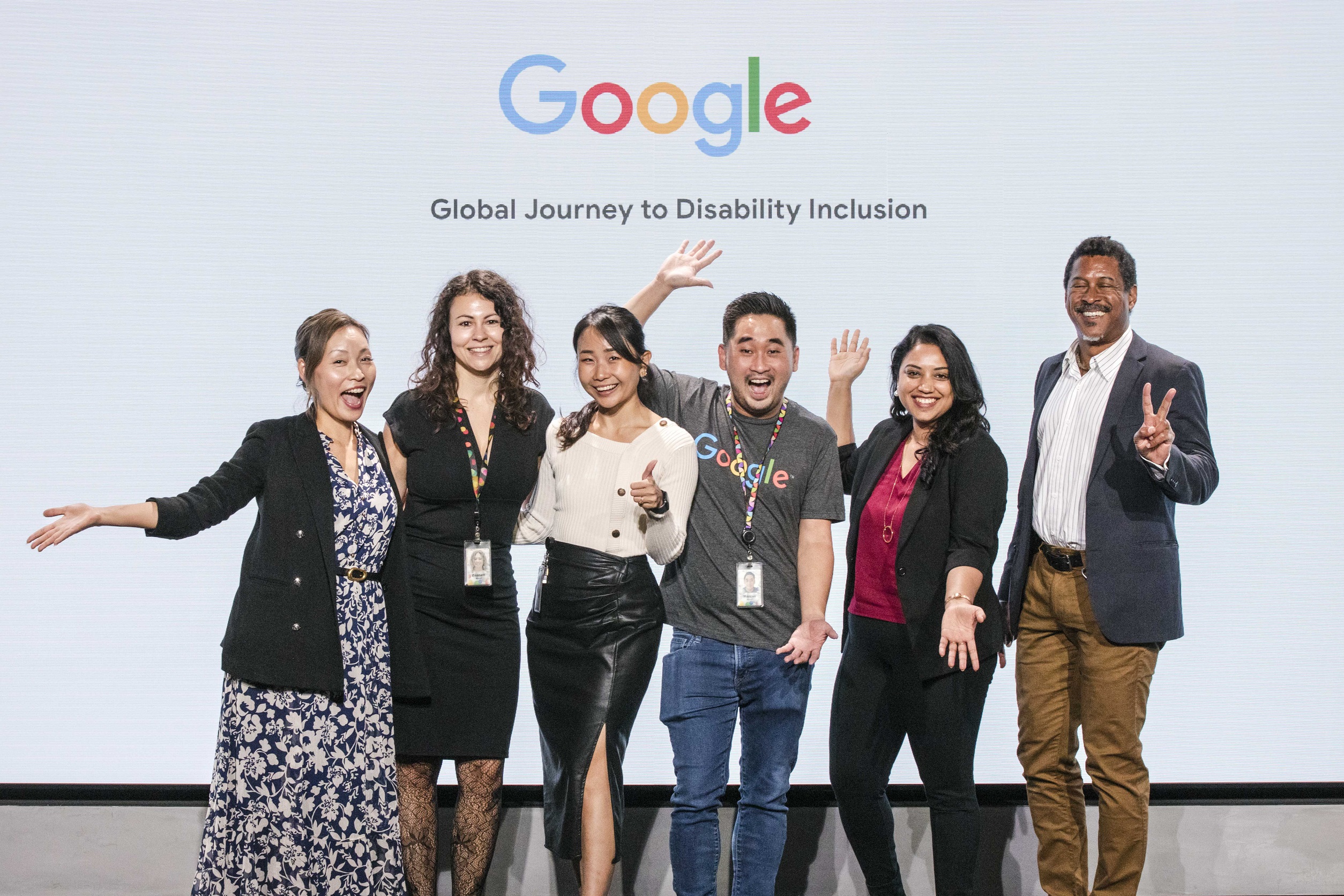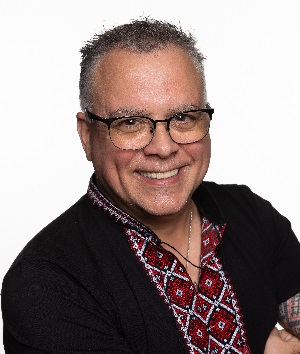Google’s human-centric approach to pioneering workplace inclusion
- Josephine Tan

In the vibrant heart of Singapore, where the pulse of innovation echoes through the bustling streets, stands the Asia-Pacific headquarters of Google—a beacon of progress and diversity in the dynamic region. Here, amidst the gleaming skyscrapers that adorn the skyline, Roman Matla, the Director of Asia-Pacific, Diversity, Equity and Inclusion, leads Google’s charge in fostering a workplace where every voice is not just heard but celebrated, and where every individual thrives.
Over the past decade, Google’s approach to diversity, equity, and inclusion (DE&I) in the Asia-Pacific region has undergone a remarkable evolution, reflecting a commitment to creating a workplace that mirrors the rich tapestry of cultures and identities across the region.
In an interview with HRM Magazine Asia, Matla recalled, “Our early DE&I initiatives centred on increasing representation in tech, particularly focusing on women and other underrepresented groups in the industry. This was achieved through strategic partnerships with universities and community organisations serving these groups, along with comprehensive programmes to raise awareness of and address unconscious biases in hiring, promotion, and daily interactions.”
A turning point came in 2014 with the launch of Google’s first Diversity Annual Report, which marked a shift towards transparency and accountability. The report not only shed light on areas needing improvements but also broadened the definition of diversity to encompass sexual orientation, disabilities, neurodiversity, and cultural backgrounds. Recognising the intersectionality of identities, Google began designing programmes that catered to the specific needs of diverse employee groups.
“We also shifted our focus from increasing the numbers of diverse employees to creating equitable systems where everyone has the resources and opportunities to thrive,” Matla elaborated. “We invested in nurturing an environment where employees feel safe to express themselves authentically, contributing to a sense of belonging and psychological safety and improved retention for diverse talent.”
Reflecting on Google’s decade-long journey, Matla underscored several key takeaways. Transparency, achieved through the annual report, has been crucial for tracking progress and identifying areas for improvement. A data-driven approach allows Google to pinpoint systemic inequities and measure the impact of DE&I programmes, ensuring these initiatives are driving meaningful change.

“DE&I is an ongoing journey, not a destination.” – Roman Matla, Director of Asia-Pacific, Diversity, Equity and Inclusion, Google
Most importantly. Matla emphasised the long-term commitment. “DE&I is an ongoing journey, not a destination,” he said. Consistent effort, continuous investment, and a willingness to adapt are essential for sustained progress.
A holistic approach to DE&I
The 2023 Diversity Annual Report showcased progress in promoting women to leadership roles. Women in leadership positions globally increased from 30.6% in 2022 to 32.2% in 2023. This positive trend held true across regions, with the US seeing a rise from 30.5% to 32.2% and Asia-Pacific experiencing the most significant growth, jumping from 31.8% to 33.7%.
Google recognises the challenges women can face in reaching leadership positions. To address this, he outlined three key strategies driving this progress—career development programmes supporting women on the path to leadership, addressing systemic barriers, and driving cultural shifts and building allyship.
He explained, “Our career development programmes not only equip high-potential women with the skills and support needed to excel in leadership positions but also match aspiring women leaders with experienced mentors and sponsors who provide guidance and career advancement opportunities. Our policies encouraging flexible work schedules and parental leave programmes also address the needs of working mothers.”
In addressing systemic barriers that might hinder women’s advancement, Google implements several key strategies, including regular pay equity analyses and adjustments to ensure women receive fair compensation for their work. Additionally, performance management practices are designed to minimise bias, focusing on objective evaluation, and transparent promotion processes to create a level of playing field where all qualified candidates have a fair shot at leadership roles.
Google also actively promotes a culture of inclusion through its Google Women@APAC network, an employee resource group fostering collaboration and professional development for women. The tech giant also encourages men to act as allies, fostering a supportive and inclusive workplace culture.
Google’s DE&I efforts extend beyond gender diversity to encompass LGBTQ+ inclusion and mental health support. For the former, Google has established Pride@ and Trans@ Employee Resource Groups (ERGs), providing a safe space for employees to connect and share experiences. Partnerships with external organisations further promote inclusion, with Google actively supporting LGBTQ+ events and initiatives—such as the 20th anniversary of Taiwan LGBT Pride in 2022, Sydney WorldPride 2023, and Gay Games in Hong Kong in 2023—across the region.
Employee wellbeing is equally prioritised as Matla elaborated, “Our Employee Assistance Programmes offer confidential counselling and support services to employees struggling with mental health challenges. We also host multiple mental health awareness campaigns to encourage Googlers and managers to create space for mental health and wellbeing, normalise conversations about mental health, and to seek help when needed. There are also stress management programmes to teach employees stress management techniques and build resilience, and wellbeing guidance and training for managers to better support their teams.”
While these initiatives contribute to a more holistic approach to DE&I, accessibility is also a key consideration, as evidenced by Google’s new hardware office in Taiwan that is designed in collaboration with their Disability Alliance ERG. From accessible entrances to braille signage, the space empowers employees with disabilities to navigate the workplace independently.
Continuing the journey towards a more equitable future
Looking ahead to the next five years, Matla outlined ambitious goals for furthering DE&I efforts in the Asia-Pacific region. Their focus will centre around three key areas.
First, Google will continue to push for greater diversity in leadership positions. This means aiming for increased representation not just at mid-level management but also at the highest echelons, including senior and C-suite roles.
Second, Google acknowledges the complexities of identity. Recognising that people often hold multiple identities that shape their experiences, Google plans to adopt a deeper intersectionality lens in programme design to ensure initiatives are more effective in addressing the specific needs of diverse employee groups.
Finally, Google understands the vast cultural tapestry that makes up the Asia-Pacific region, as Matla explained, “Instead of taking a one-size-fits-all approach to DE&I, we have been and will continue to drive our DE&I strategy through tailored plans and initiatives that meet the local needs. For example, Google Australia advocated inclusion of Aboriginal and Torres Strait Islander people, and we launched a Stretch Reconciliation Action Plan in 2022 – being the first tech organisation in Australia to do so.”
READ MORE: HR Tech Festival Asia 2024: Employees first for a resilient future
Drawing from Google’s rich experience, Matla offered his advice for HR professionals embarking on their own DE&I journey: Secure C-suite buy-in to drive visible, active leadership support. Start with data to identify areas of need and track progress, as well as listen and learn from underrepresented groups within the organisation.
Lastly, leverage partnerships with external organisations and NGOs focused on DE&I, and celebrate small wins to maintain momentum and morale along the journey, he concluded.






